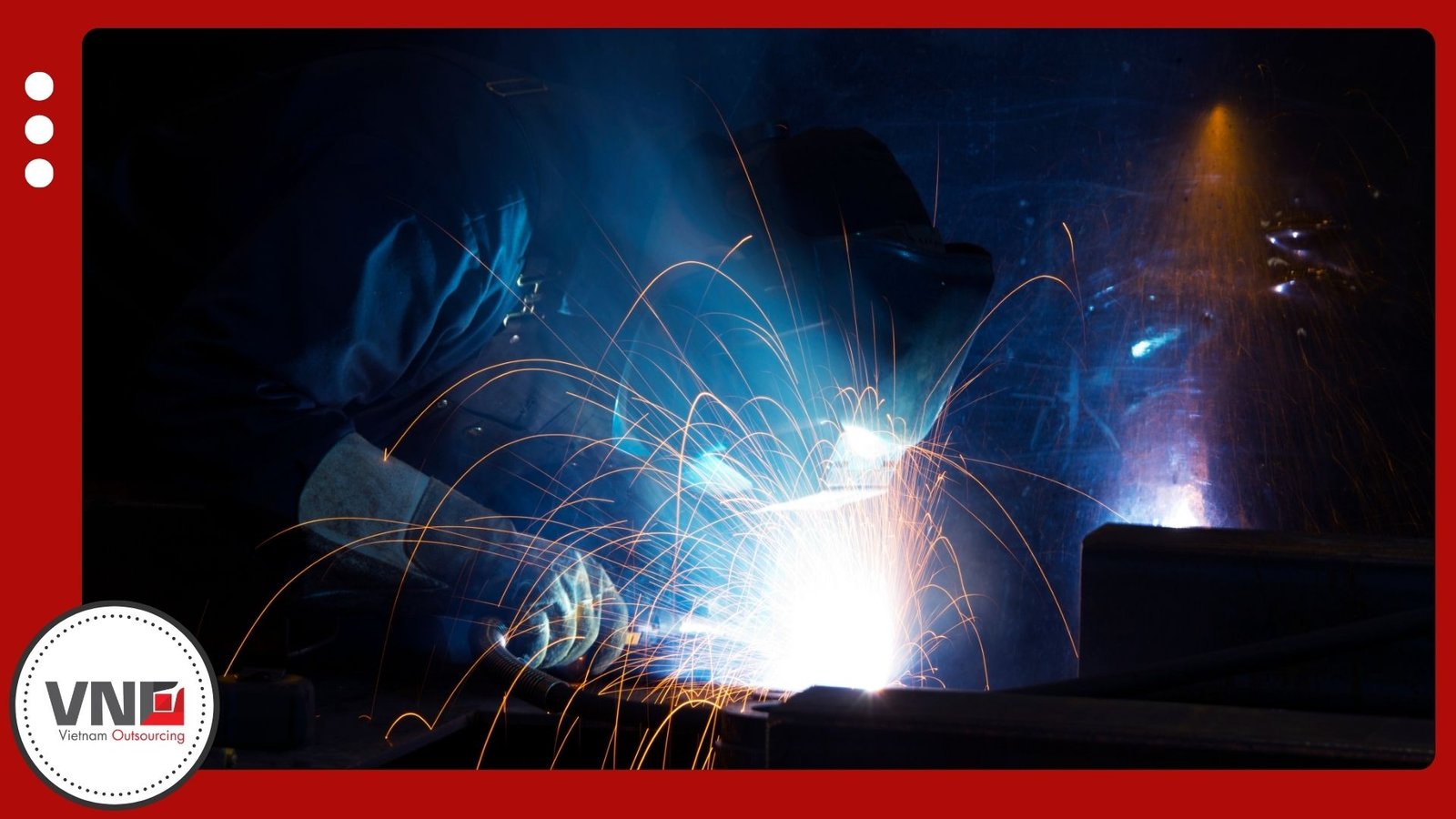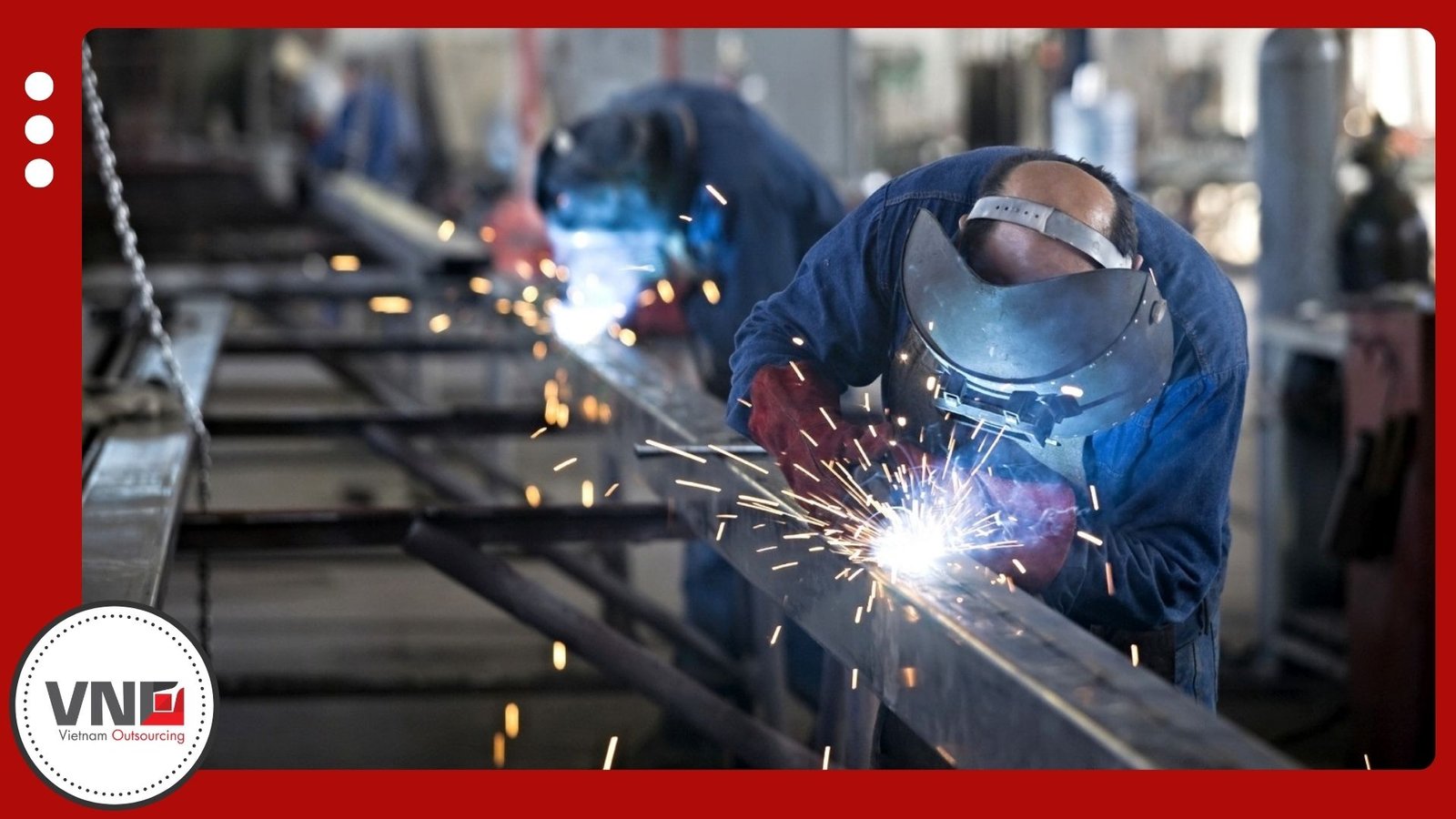Introduction
Die casting is one of the most efficient ways to manufacture precision components at scale. The process forces molten metal into a mold cavity under high pressure. Because the method requires only four key steps, it reduces incremental costs and makes large-volume production affordable. As a result, die casting produces more castings than any other process worldwide. That said, you can know more about benefit of die casting in Vietnam by reading this article
However, every finished part depends on the die casting material used. The choice of metal determines the product’s strength, durability, and overall performance. Below are the most widely used metals in die casting and the industries where they deliver the best results.

Zinc as a Die Casting Material
Zinc is the easiest metal to cast thanks to its high ductility and impact strength. It also accepts plating easily, which adds durability and improves appearance.

Because zinc alloys provide excellent dimensional accuracy, they achieve tighter tolerances than aluminum, plastics, or grey cast iron. Another advantage is tool life: zinc’s low casting temperature minimizes thermal shock, giving dies up to ten times more life compared with aluminum.
Zinc die casting applications are everywhere. Electronics, automotive parts, appliances, and decorative components all benefit from zinc’s combination of strength, precision, and cost efficiency.
Aluminum as a Die Casting Material
Aluminum is the most popular die casting material in the world. Lightweight yet strong, it creates durable components with excellent thermal and electrical conductivity. Its resistance to corrosion and ability to maintain strength at high temperatures make it suitable for a wide range of industries.

Automotive manufacturers rely heavily on aluminum die casting. More than half of the aluminum used in vehicles comes in cast form, from engine blocks to housings. In electronics, aluminum’s heat dissipation makes it ideal for RF filter boxes and connectors. It is also widely used in energy systems and computing equipment where lightweight and high stability are essential.
Magnesium as a Die Casting Material
Magnesium is the lightest alloy used in die casting and is 75% lighter than steel without significant loss of strength. It offers excellent fluidity, high castability, and resistance to porosity, making it easier to mold into complex shapes than aluminum or copper.

Magnesium also provides natural EMI and RFI shielding, which protects sensitive electronics. For this reason, it is common in medical devices, laboratory equipment, and electronic housings. The material’s automotive applications continue to expand; for instance, the Volkswagen XL1 used a magnesium alloy frame to improve fuel efficiency while maintaining safety.
Copper as a Die Casting Material
Copper delivers superior hardness, corrosion resistance, and strength close to steel. It also offers high wear resistance and excellent dimensional stability. Because copper alloys conduct heat and electricity so efficiently, they are ideal for components that require both strength and performance.

Die cast copper is widely used in architectural fittings, industrial equipment, and automotive components. It is also valuable in household products and building materials where long-term durability is essential.
Conclusion
Each die casting material—zinc, aluminum, magnesium, and copper—offers unique strengths. Zinc provides precision and long tool life, aluminum delivers lightweight durability, magnesium combines strength with EMI shielding, and copper ensures unmatched conductivity and resistance.
Selecting the right metal is not just a technical choice; it directly impacts cost, performance, and reliability. For Vietnam die casting supplier and buyers, understanding these options ensures that every die cast product meets both functional and economic goals.






